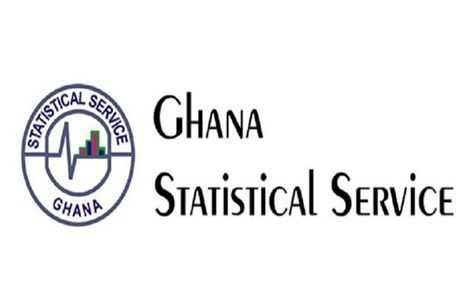Beginning next year, the Ghana Statistical Service (GSS) is to release two sets of statistics on the country’s gross domestic product (GDP).
The regular GDP figures will be released alongside an adjusted GDP that also accounts for the country’s natural capital.
Dubbed, “Natural Capital Accounting (NCA)”, the new regime goes beyond the standard national account to estimate the economic value of natural resources such as air emissions, forest, land, water resources, fisheries and biodiversity.
The Government Statistician, Prof. Samuel Kobina Annim, who made this known, said the NCA would allow the GSS to quantify and measure the value of natural resources and ecosystems in economic terms and provide the framework for comprehensively assessing the contribution of natural capital to the country’s economy.
“The benefits of doing this are several, which is that if you know the stock of your natural resources, and you know the extent to which you are depleting it, it just tells you that at a point in time, especially when they are not regenerating natural resources, you will not have access to them again, so you need to check it,” he added.
Prof. Annim was speaking at a high-level forum on NCA organised by the Environmental Protection Agency (EPA) in Accra yesterday.
Participants were staff from ministries, departments and agencies (MDAs), and development partners.
Progress
Prof. Annim said “good progress” had been made in terms of the compilation and dissemination of NCA in some of the natural resource sub-sectors, especially water, land and forest.
“We have started the compilation across these three domains and what we are looking forward to is to reach an appreciable stage by the end of the year so that we can begin the NCA fully next year,” he added.
He said it was unacceptable that although the local economy was heavily reliant on natural resources, with the mining and agriculture sectors being the main drivers, enough had not been done to account for those resources.
“If we really want to think about the future generations and how we can sustain our development so that we will not be vulnerable, then it is important that anytime we are estimating our output level, we adjust it by the extent to which we are depleting our natural resources,” Prof. Annim said.
Sustainable management
A Deputy Minister of Finance, John Kumah, also said that if the NCA was effectively implemented, it would facilitate sustainable management of natural resources.
“To achieve sustainable development goals (SDGs), we must comprehend the interdependencies and trade-offs between the economy and the environment.”
“The NCA can support the delivery of the SDGs by ensuring that natural capital is integrated into the planning and implementation process at the national, regional and local levels,” he added.
In a speech delivered on his behalf, the Executive Director of the EPA, Dr Henry Kwabena Kokofu, said the unsustainable management of natural capital was “ecological, social and economic liability” which could be catastrophic for the economy.
“If we are going to be able to sustainably manage our natural capital, then there is the need to use quality, reliable and timely data and statistics which can be generated through the NCA,” he said.
The Chief Director of the Ministry of Environment, Science, Technology and Innovation (MESTI), Dr Patrick Nimo, who delivered a speech on behalf of the sector minister, Dr Kwaku Afriyie, also said that the NCA would help stakeholders to have access to a comprehensive database to model potential scenarios for changes in ecosystem integrity.
News & Information you can trust.
Source: graphiconline.com
| Disclaimer: Opinions expressed here are those of the writers and do not reflect those of Peacefmonline.com. Peacefmonline.com accepts no responsibility legal or otherwise for their accuracy of content. Please report any inappropriate content to us, and we will evaluate it as a matter of priority. |
Featured Video
















